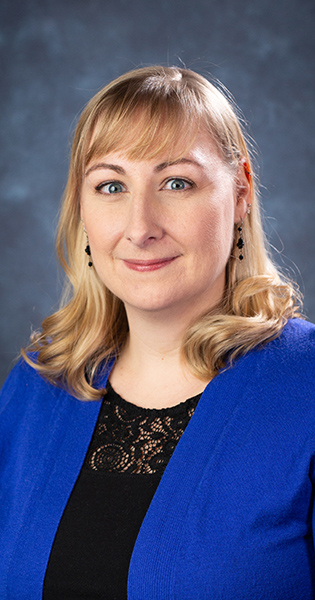
Dr. Brooke Schmeichel, an expert in research of the neurobiology of addiction, joined the Quillen College of Medicine faculty in February 2020 as Assistant Professor in the Department of Biomedical Sciences.
She earned a BS (2001), MS (2010) and PhD (2012) in psychology from the University of Wisconsin-Madison. She began a postdoctoral fellowship with Dr. George Koob at The Scripps Research Institute and completed her postdoctoral training at the National Institute on Drug Abuse, Intramural Research Program.
How did you develop your interest in addiction medicine?
I became interested in addiction research early in my training at UW-Madison. My early work as a lab tech focused on the cognitive-enhancing and arousal-promoting effects of psychostimulants (including amphetamine and methylphenidate [Ritalin]) used at clinically-relevant doses to treat disorders such as attention deficit hyperactivity disorder.
Although there are clear therapeutic benefits, particularly at low doses, psychostimulants also have high abuse potential when used at higher doses. During my graduate training, I became interested in the behavioral neuropharmacology of stimulants and began investigating the behavioral, reinforcing, and reinstating actions of stimulants and how these properties may contribute to addiction.
As I learned about the neural mechanisms that underlie the behavioral actions of stimulants, I became curious about the role of stress in addiction. I had witnessed first-hand the devastating effects of drugs and alcohol in addicted family and friends. The negatively reinforcing aspects of addiction became apparent, as anxiety, irritability, negative affect, and physical withdrawal symptoms emerged in my loved ones, and drove their continued drug/alcohol use. This “dark side” of addiction was the primary focus of my post-doctoral training under Dr. George Koob and continues to be at the center of my independent addiction research here at ETSU.
What are your goals here at Quillen College of Medicine?
Our translational preclinical research in the lab focuses on the neurobiological
mechanisms of stress system sensitization, reward system deficits, and sleep dysfunction
in drug and alcohol addictions. Our ultimate goal is to identify potential neurobiological
targets for the pharmacological treatment of substance use disorders that can be used
in combination with behavioral therapies in the clinical setting. In the near future,
we hope to garner some collaborative relationships with clinicians in the area who
are working with individuals with substance use disorders to conduct translation research
as well. As a QCOM faculty member, I also feel a responsibility to educate our professional
health students in safe and responsible practices of prescribing controlled substances
to patients.
What do you enjoy doing in your spare time?
My spare time is usually spent chasing my 2 ½ -year-old and 9-month-old children.
As a family, we really enjoy being outdoors and exploring nature. My husband and I
like to travel and experience new cultures as often as we can.
We are excited to be part of the ETSU and Johnson City communities and have felt very welcomed! We moved from the hustle and bustle of Washington, D.C. area, so we are grateful to take in the more relaxed way of life here in east Tennessee
 Sam Wilson West Parking Lot C...
Sam Wilson West Parking Lot C...